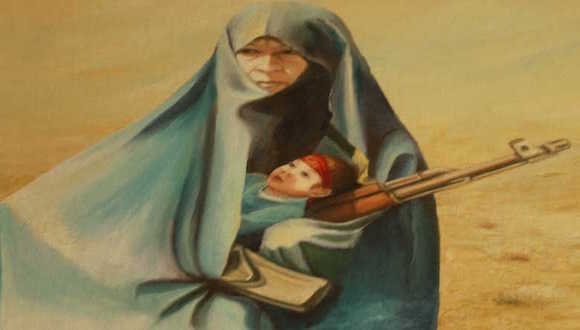Maternal Health in Afghanistan, Khalid Hosseini.
Inside the old, dingy operating room, Laila lay on a gurney bed as the doctor scrubbed her hands in a basin. Laila was shivering. She drew in air through her teeth every time the nurse wiped her belly with a cloth soaked in a yellow-brown liquid. Another nurse stood at the door. She kept cracking it open to take a peek outside.
The doctor was out of her burqa now, and Mariam saw that she had a crest of silvery hair, heavy-lidded eyes, and little pouches of fatigue at the corners of her mouth.
“They want us to operate in burqa,” the doctor explained, motioning with her head to the nurse at the door. “She keeps watch. She sees them coming; I cover.”
She said this in a pragmatic, almost indifferent, tone, and Mariam understood that this was a woman far past outrage. Here was a woman, she thought, who had understood that she was lucky to even be working, that there was always something, something else, that they could take away.
Burqa – A long, loose garment covering the whole body from head to toe, worn by women in public in many muslim countries.
Extracts from A Thousand Splendid Suns.
Commentary
Lacking manpower and medical resources, Khaled Hosseini’s description of the hospital in his novel seems far from being fictional. Laila, one of the female protagonists, enters a hospital that “stank of sweat, unwashed bodies, feet, urine and cigarette smoke” to conceive a child amidst an understaffed and overcrowded environment. The female doctor is required to wear a burqa at all times even while operating in the story. Throughout the book, we can see Hosseini does his best to paint a clear picture of the tough environment for women back then in Afghan.
The patient to healthcare staff ratio continues to remain as disproportionate as described in the story. Accounts of instances where women were driven out of hospitals while giving birth in “clinics for only men” just twenty years ago, adds to the innumerable complex factors behind the inadequate medical care for women in Afghanistan.
In the year 2005, estimates done by UNICEF suggest that the maternal mortality rate was as high as 1800 deaths per 100,000 live births, which was the second highest in the world. As an indirect consequence of political wars in Afghanistan over the years, women’s health in particular suffered tremendously.
Women are more likely to die of child birth in Afghanistan more than by anything else. The medical content of Hosseini’s book is slight, but telling. His work has a touch of his medical background hidden in the story – it could either be in the form of portraying one of the characters as a doctor as he does in his novel “And the mountains echoed” or describing manifestations of some health conditions with accuracy.
Further info
- Khaled Hosseini – The official website for his novels.
- The Khaled Hosseini foundation – The official website for his non-profit humanitarian organization that help to provide homes for refugees and support women and children of Afghanistan in several ways.
- Afghanistan, Separate Hospital Treatment for Men and Women. – Online casebook that describes events with a focus on women’s (inadequate) access to proper healthcare facilities
- Midwifery in Afghanistan. UNICEF. PDF. (Maternal mortality rate statistics)
- Hosseini, Khaled. A thousand splendid suns. Bloomsbury Publishing, 2009. Available in a library near you.
- Image: OPAWC (Organization of Promoting Afghan Women’s Capabilities)
Contributed by
Lekaashree Rambabu

